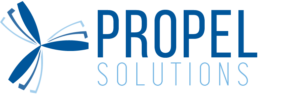The Challenge
The Vancouver Fraser Port Authority’s (VFPA) is the federal agency responsible for the stewardship of the Port of Vancouver, Canada’s largest port. The VFPA is a process thinking organization that is highly committed to drive operational excellence and business agility. The VFPA re-engaged Propel to conduct a review of the Continuous Improvement (CI) Toolkit that was developed during a past engagement with Propel in 2020 as well as establish an enablement framework to support VFPA’s Process Owners. The purpose of the engagement was to ensure the CI Toolkit was adapted to meet the changing needs of VFPA’s Process Owners in a Hybrid working environment.
The Objectives
Adapt CI Toolkit to a Hybrid Working Environment: Propel started with a review of the 41 existing CI tools utilized across 9 Business Process Improvement Phases to understand what has been working well for the team before identifying opportunities for enhancement. Next, Propel identified toolkit delivery best practices and provided a framework for leveraging each tool in “Remote,” “In Person,” and “Hybrid” delivery methods. Various collaboration tools were highlighted to ensure the use of CI tools was adapted for different working environments. The analysis provided the Process Owners a comprehensive CI Experience regardless of the mode of communication or experience level.
Develop Process Owner Enablement Toolkit for Hybrid Working Environment: Propel developed a Change Enablement Structure and accompanying toolkit to assist the Process Owners with installing, maintaining, and empowering their staff to take ownership of the CI tools. A Best Practice Change Management Framework was provided to support the business units as they transition to a CI Organization, noting the communication tools and supporting behaviours required to Install Change, Manage Resistance, and Sustain Change. Detailed corrective actions were provided to identify the root cause of when changes are failing.
The Results
The resulting 27-page CI Enablement Toolkit Guide provided the VFPA with a framework to maximize its Continuous Improvement Toolkit and operationalize identified improvements across the organization. With the increased importance of remote collaborations and move towards flexible hybrid work, the guide served to allow the VFPA to increase adoption of their toolkit, leveraging the many available technological solutions, creating an interactive, engaging environment, and ensuring accountability to move a CI Project forward.

